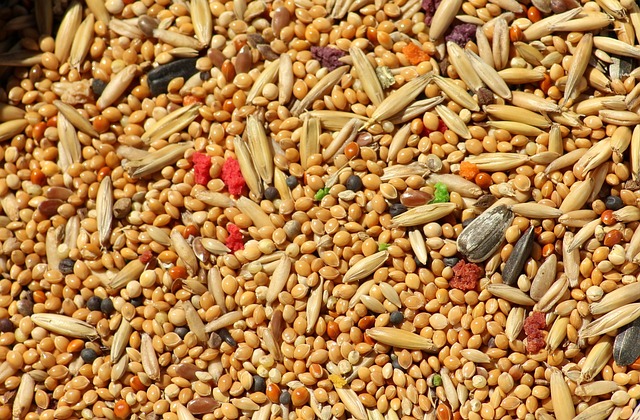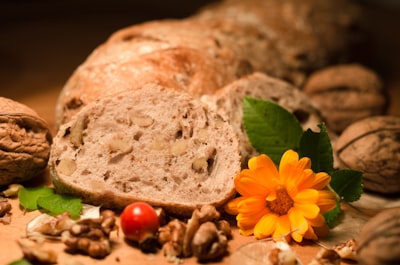The Thiamine vitamin (also called vitamin B1 and aneurin) was initially extracted by Jansen and Donath in 1926 from rice polishings. The chemical structure of Thiamine resembles a ring, hence its name. Thiamine Vitamin dissolves easily in water and reacts easily with heat in alkaline or neutral solutions. Thiamine Vitamin plays an important role in mitochondrial energy and glucose metabolism.
This is an important factor in a child’s brain development throughout infancy. Thiamine vitamin, is essential for all cellular functions in the human body. It also essential for proper nervous system function and metabolism. This helps to develop language, reading, memory, and lexical skills.
Human body flush out extra Thiamine through urine hence, enough food intake is required to maintain tissue thiamine levels. Low thiamine levels are linked to low nutritional status and worse perinatal outcomes.
Functions of Thiamine Vitamin
B1 is an essential vitamin that your body need for several functions. For optimal functioning, your body need an appropriate amount of vitamin B1. Vitamin B1 has a variety of functions, Let’s Examine the Top 5 Uses for the Vitamin Thiamine:
Act as Coenzymes
Thiamine act as a coenzyme. thiamine’s primary job is to release energy from glucose and store it as fat, freeing up energy for the body’s regular development and operation. The coenzyme form of thiamine, thiamine pyrophosphate, is required to catalyst the body’s oxidation of carbohydrates. The system’s energy is released by this reaction.
Proper function of Nerve System
The central nervous system needs glucose as an energy source. A shortage of thiamine causes nerves to malfunction and energy to not be released, which impairs reaction and awareness. A lack of interest, exhaustion, and discomfort are the outcomes. Continued deficiency might harm nerve tissues, resulting in discomfort and ultimately paralysis.
Gastrointestinal Tract
In the gastrointestinal tract, thiamine aids in the production of energy required by smooth muscle and secretory gland cells. Loss of it results in inadequate gastric secretions and loss of muscular tone, which impairs stomach function and causes low appetite, indigestion, and constipation.
Cardiovascular System
Heart failure may result from the weakening of the heart muscle caused by an intermittent energy supply caused by thiamine deficiency. Moreover, the enlargement of blood vessels brought on by deficiency might result in blood pooling in the legs.

As a result, there is a disruption in overall bodily function due to the negative effects of low thiamine availability on the systems.
Other Functions
Additionally, deficiencies produced by cirrhosis, an overactive thyroid, alcoholism, infections, and nursing can be repaired with thiamine. It also aids in the treatment of beriberi and herpes zoster. Additionally, it aids in the recovery from exhaustion, depression, and motion sickness.
People who drink excessively may develop a neurological condition that can be effectively addressed with Thiamin supplements.
Sources Of Thiamine
In general, thiamine may be found in all Types of foods. Thiamine Vitamin may also be found in sugar and oil, but not as much. Good plant sources of thiamine include legumes, nuts, oilseeds, whole grain cereals, parboiled rice, fresh peas, soybeans, Bengal gram, sunflower seeds, and garden cress seeds.
You may also like :Water-an essential nutrient
Recommended dietary allowance of Thiamine Vitamin
In basic terms, calorie intake determines the amount of thiamine required.
For men and women aged 19 and above, the Recommended Dietary Allowance (RDA) is 1.2 mg and 1.1 mg, respectively, per day. The dose rises to 1.4 milligrams per day if breastfeeding or pregnant.
Age, disease, certain conditions like alcoholism, and intense physical activity (such as Sports or Athletic) all raise the need for Thiamine.
Few topics to overview About Thiamine Vitamin
Even though Thiamine Vitamin is found in many foods, processing of cereals and legumes eliminates a large portion of the Vitamin from the diet.
Because Thiamine is soluble in water, it is also lost when the water used to boil cereals or pulses is disposed of. Some Thiamine is also destroyed by excessive heating.
Additionally, polishing grains causes a significant loss of Thiamine vitamin the food we eat. Thiamine loss results from the use of soda as a preservative in many processed foods.
Precautions need to be taken in order to prevent Thiamine Vitamin deficiency. Just like when you replace white rice with parboiled rice. use entire grains in their flours rather than processed grains. When cooking, steer clear of overheating the food and use just the right amount of baking soda.








